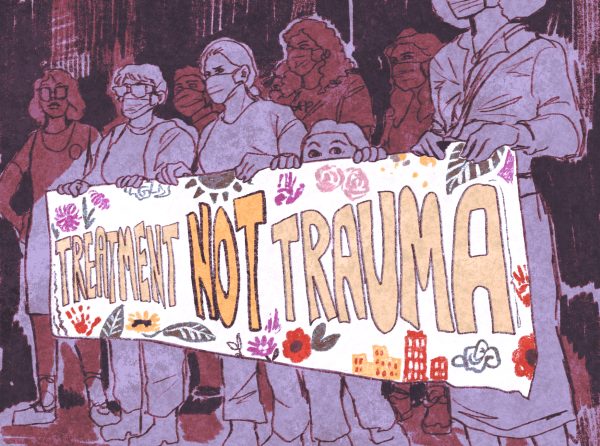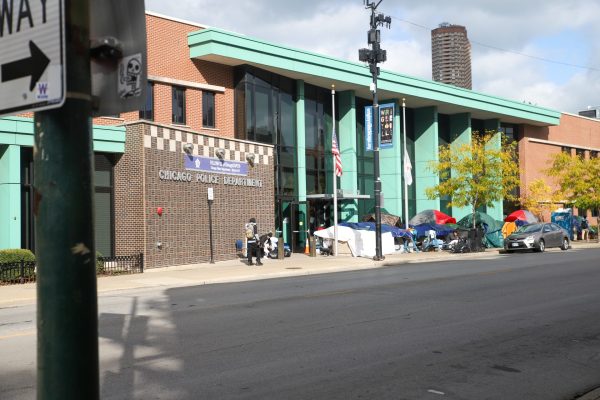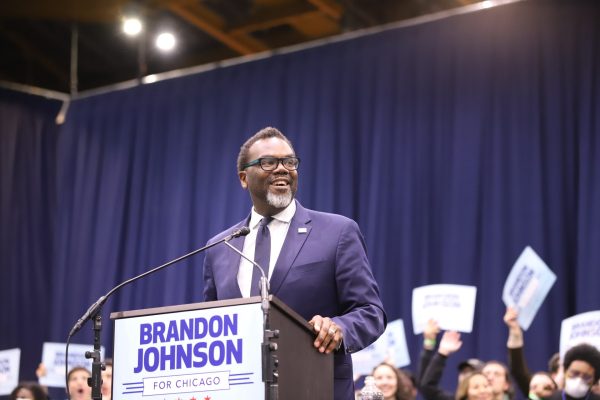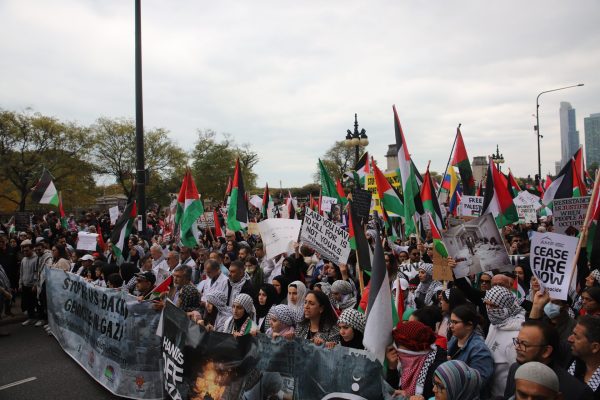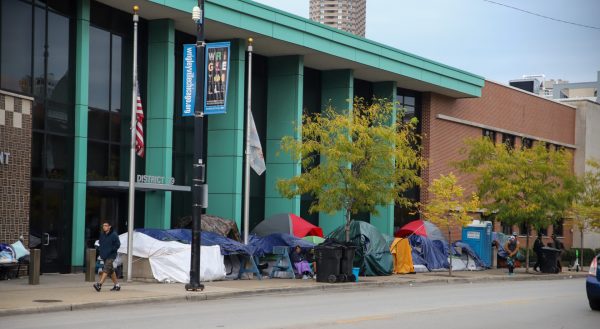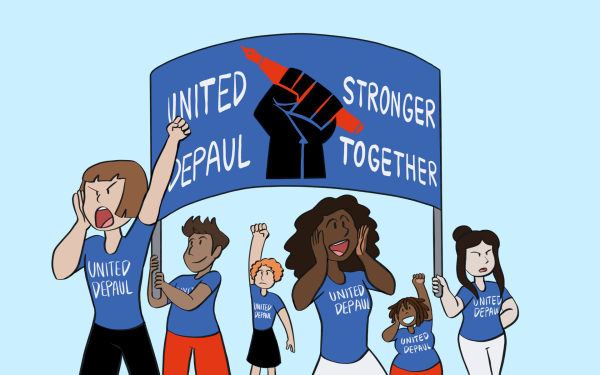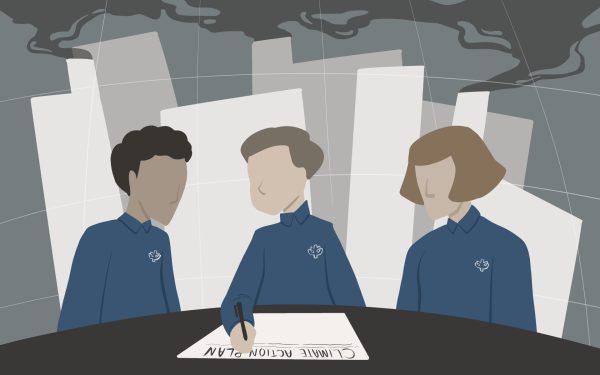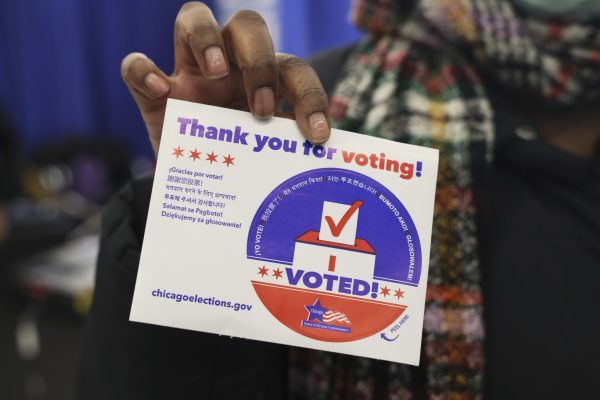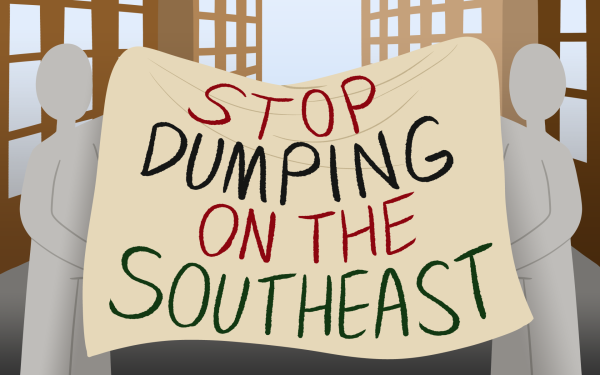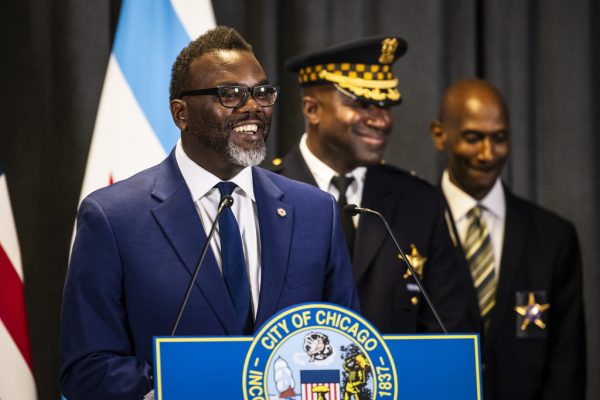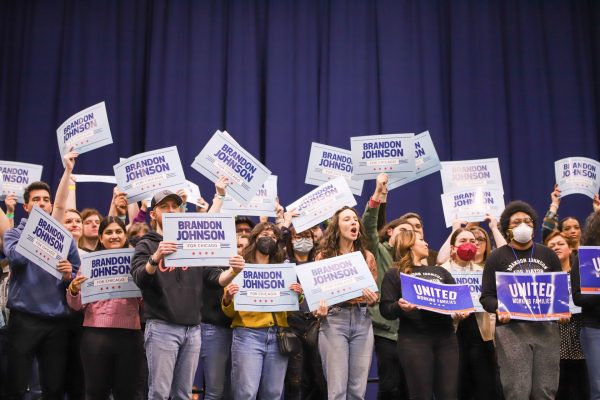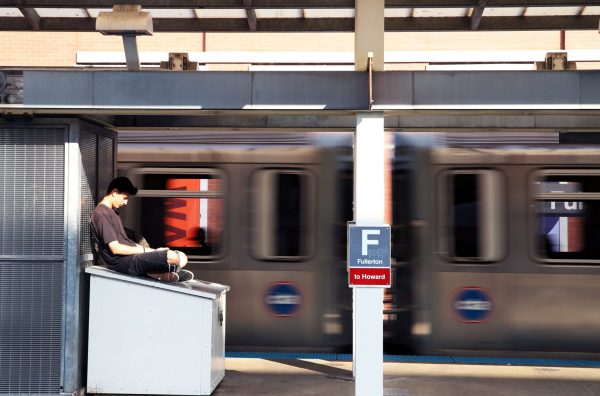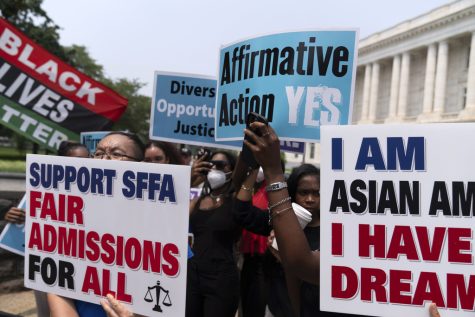TRECC Human Service Centers to present a ‘holistic’ approach to community care
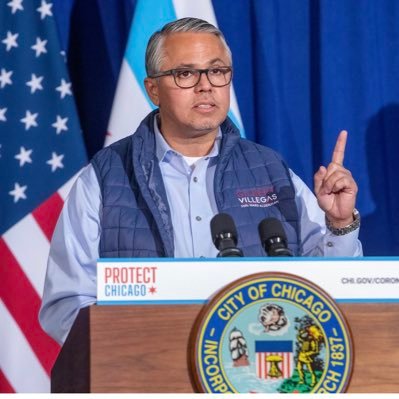
36th Ward Alderman Gilbert Villegas has spoken in support of the TRECC business model and believes it will attract economic development in Chicago.
Technology Renewable Energy Command Center (TRECC) Human Service Centers may be the future of accessible community care in Chicago.
Members of the City Council Committee on Economic, Capital and Technology Development expressed support for TRECC Human Service Centers during their Feb. 7 meeting.
These centers will include career advising resources, a mental health café, food bank, medical clinic, meeting rooms and recreation area in one building with free broadband access.
The goal of TRECC is to create a “one-stop shop” for personal care and job training to curb trauma and violence in underserved areas.
Revin Fellows, the community outreach coordinator for TRECC and co-founder of the non-profit ‘Books of Balls,’ told The DePaulia that a facility like TRECC does not yet exist.
He said existing agencies for mental health care and job training, “tend to not treat people who don’t have resources like they’re the problem and not the victim.”
“We’re going to make sure we pull out love, respect and appreciation to our people because they’ve gone through too much,” Fellows said.
Chicago-based FBRK Brands (pronounced “fabric”) is a philanthropic real estate company that “focuses on community development through clean and green real estate assets in urban communities,” according to TRECC Human Service Center’s executive summary.
FBRK Brands is the umbrella organization that created the TRECC model and Impact House, a collective workspace downtown that houses the city’s leading philanthropic organizations.
Dejuan Kea, founder and CEO of FBRK Brands, said during the Feb. 7 meeting that TRECC is a “workforce development hub” that aims to address issues impacting underserved communities throughout Chicago.
Support for this Model
The TRECC team presented to the city council’s committee on economic, capital and technology development to promote the creation of the first TRECC Human Service Center in the Kenwood neighborhood on Chicago’s South Side.
Committee Chairman Ald. Gilbert Villegas of the 36th Ward said during the meeting that the TRECC model, “concerned matters that directly affect the development and economic attraction of Chicago.”
Grade school science teacher and lifelong South Side resident Denise Eno, 60, agreed that TRECC would be a beneficial addition to underdeveloped areas.
“I think our community lacks access to affordable health care and patience when training
under-skilled workers,” she said.
“Some of my students and their families would utilize a facility like this,” Eno said.
Afrika Porter, CEO of public relations and consulting firm Afrika Enterprises, echoed that underserved families lack access to technology, job training and intentional workforce development.
“This has an adverse effect on the increase of violence and the increase of negative mental health,” Porter said. “TRECC Human Service Centers will be a space where we provide an opportunity for families to engage with technology.”
Craig Wemberly, president of Coalition of African American Leaders (COAL), also advocated for the importance of TRECC as an “integrated way of treating problems holistically so that we can make real, substantive change happen.”
As a lifelong resident of Chicago’s Hyde Park neighborhood, Porter told The DePaulia she was drawn to the TRECC model because of this holistic approach that emphasizes many facets of well-being.
She said preventing poverty, violence and crime is all about accessibility.
“When we have access to capital, when we have access to resources, when we have access to education, then we have better results,” Porter said.
FBRK has already seen results in a program they currently facilitate with the Urban Tech Academy and Amazon. They sponsor a 3-month web services training program for people to become certified with Amazon.
This entry-level tech training allows people to land jobs with a living wage and benefits.
“All of the programming that we are doing right now in different locations will become part of the fabric of the TRECC centers,” Kea said.
The accessibility that FBRK currently provides will be maximized at TRECC centers.
Timeline
Despite a plan for the mission and operation of TRECC, there is not a clear timeline for when the flagship center on the South Side will open.
The delay is partly because of the soon-to-be vacant alderman position in the 4th Ward where the TRECC center will be located. Current 4th Ward alderman, Sophia King, is running for mayor and has confirmed she will not return to her position as alderman after the race.
“I wouldn’t want to commit or speak to anything until we understand the lay of the land with the new alderman,” Kea said.
Nevertheless, the TRECC team has a well-established plan they are determined to make progress on within the next year.
“We have a prototype already together. It’s just a matter of retrofitting an existing building,” Kea said.
The TRECC Human Service Center prototype is designed for a brand new building project to incorporate the diverse spaces presented in the business plan.
Constructing an entirely new space would cost around $36 million, while converting an existing space into a TRECC center would cost about $15 million and take less time, according to Kea. To mitigate financial costs, TRECC plans on rehabilitating an existing building on the South Side.
“We put a lot of thought into how we can make these buildings self-sustainable and efficient to minimize the operations cost, while also making sure that almost every inch of the building will be a teaching tool,” Kea said.
These plans require funds that Kea and Fellows said will have to come from within his organization.
Cost
The 2021 American Rescue Plan established the Coronavirus State and Local Fiscal Recovery Funds (SLFRF), which designated $350 billion to state and local governments to manage the economic impacts of Covid-19.
With the $4 billion remaining from the $8.127 billion originally allocated to Illinois, the FBRK Brands team proposed to create seven TRECC Human Service Centers across the city.
After presenting the prototype and business plan to Gov. J.B. Pritzker earlier this year, FBRK Brands did not receive the SLFRF funds from the state even after receiving letters of support from aldermen and state representatives.
“We’re serious about what we are doing,” Kea said. “Even though the governor did not follow through on what he thought was a great idea, we’ve decided to move forward.”
This means the first TRECC Human Service Center will be largely self-funded.
Fellows was more blunt about his disappointment in state leadership.
“There’s nothing like TRECC and the money was there,” said Fellows. “For them to deny this while blood is running rampant in the streets is devastating. Some of that blood is on people’s hands for rejecting this model.”
FBRK has financial partners who will invest in the establishment of the first TRECC center. Kea hopes that after the center opens, it will be successful and convince the state to become an active partner.
Moving forward
Chairman Villegas commended TRECC’s business model and “efforts to build a strong, resilient, and equitable economic recovery development through investments that support long-term growth and opportunity.”
The TRECC team is grateful to Villegas and his committee for their endorsement.
Fellows looks forward to giving people “mental hope” through programs that will be facilitated through TRECC, while Kea is proud to be a part of an effort to make Chicago communities more successful and sustainable.
“I feel good about where we are this year. I feel really good about the sites that we’ve identified and what we can do with them,” Kea said.
He wants Chicagoans, like Eno, to know “there are people who are truly trying to make a difference.”


